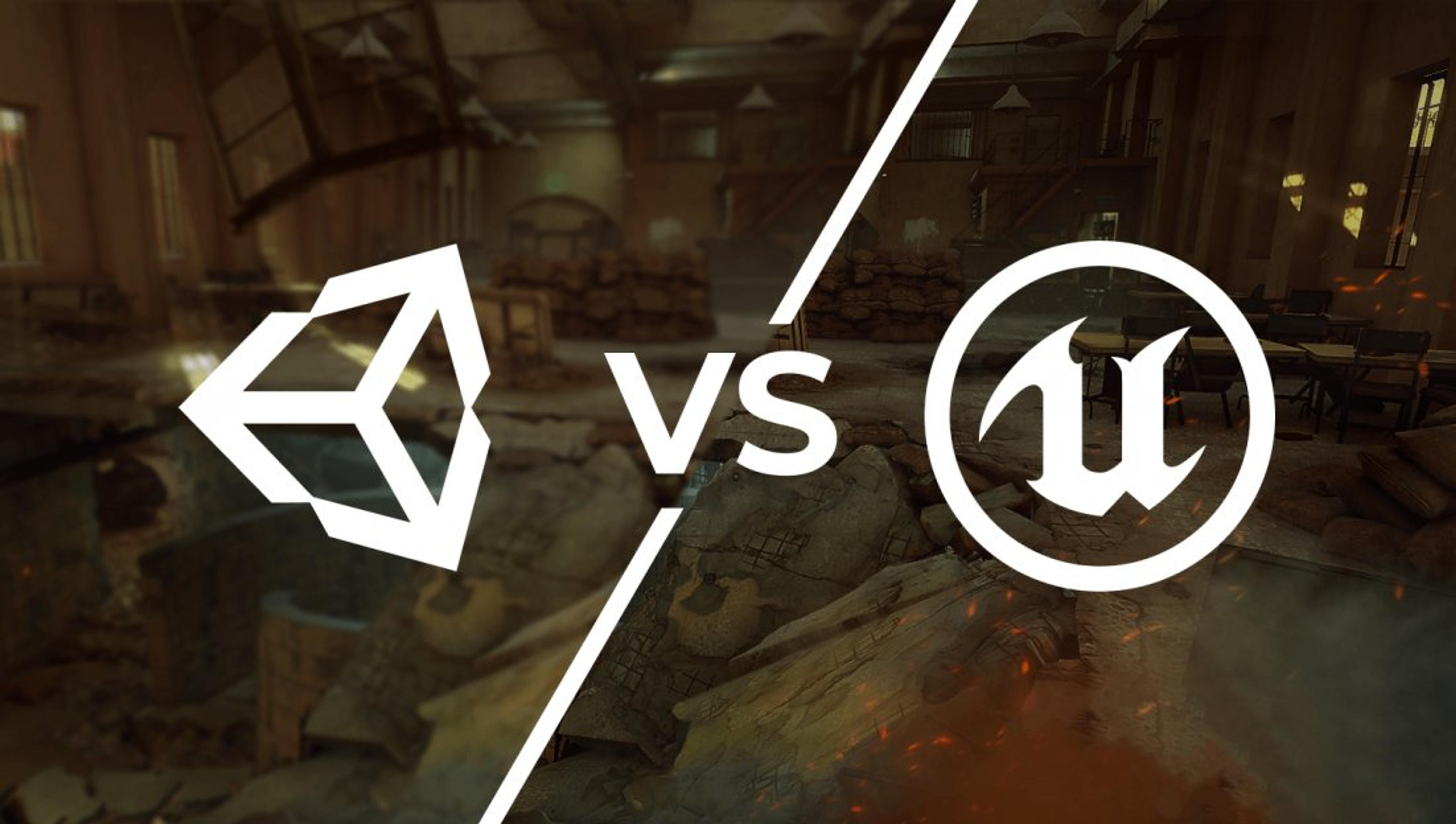Heya!
So, you want to get into game development, but you're not sure whether you should use Unity or Unreal. You don't want to choose the wrong engine and have to start all over again. Which one do you think would be the better choice for you?
Unreal Engine:
Unreal Engine, developed by Epic Games, is a powerful and feature-rich game engine that has been utilized to create some of the most visually stunning games in the industry, such as Hellblade: Senua's Sacrifice, the Final Fantasy 7 remake, and choo-choo Charles. It is renowned for its advanced rendering capabilities, enabling developers to produce high-quality graphics and realistic environments. Additionally, Unreal Engine offers a comprehensive suite of tools for creating and modifying character animations and special effects, which is one of its major benefits. For beginners, the large and active community of developers who contribute resources and support to the platform can be immensely helpful, particularly those who are just starting out and may have questions. Unreal Engine also has a strong presence in the educational sector, with many universities and programs centered around the engine. However, Unreal Engine may be quite overwhelming for beginners, as it is known to have a steep learning curve and requires a certain level of technical expertise. Furthermore, it is more resource-intensive than other game engines, which may need a more powerful computer to run it smoothly, and there are numerous courses available that teach how to create video games inside the engine.
Unity:
Unity is a popular game engine that is renowned for its user-friendly interface and intuitive workflow. It is a cross-platform engine, which means that games developed with Unity can be easily deployed to a wide range of platforms, including PC, console, mobile, and web. This makes it an excellent choice for beginners who want to create games that can reach a broad audience. Unity offers a vast array of tools and resources to developers, including a visual scripting system called Playmaker. This enables beginners to create gameplay without having to write code, making it an ideal way for those new to game development to get started and learn the basics. Like Unreal Engine, Unity has a strong presence in the educational community. Although Unity is generally considered easier to learn and use than Unreal Engine, it does have some limitations when it comes to creating high-quality graphics. While it is possible to create visually stunning games with Unity, it may require more time and effort compared to Unreal Engine.
Performance:
Unreal Engine is known for its high performance and is frequently used to create games with demanding graphics and gameplay. It offers a variety of advanced rendering and physics features, as well as support for multi-threading and parallel processing, making it an excellent option for developers seeking to create games with detailed graphics and realistic physics. On the other hand, Unity, while not as powerful as Unreal Engine, is still capable of creating high-quality games. It includes a variety of performance-enhancing features, such as support for multi-threading and the ability to optimize game assets for specific platforms. However, it may not be the best choice for developers seeking to create games with demanding graphics or physics.
Platform Support:
Both Unreal Engine and Unity support a wide range of platforms such as PC, console, mobile, virtual reality, and augmented reality. Unreal Engine is slightly better suited for consoles and high-end PC hardware, while Unity is designed to be lightweight and easy to use on mobile platforms. Both engines have built-in asset stores that allow developers to purchase and use pre-made assets and plugins in their projects, which can save a lot of time and effort. The Unity asset store is easier to navigate and has a wider variety of assets. Ultimately, the best choice for beginners will depend on their goals and needs as a game developer. Unreal Engine may be the better option for creating visually stunning games with advanced graphics and special effects.
Minimum Requirements:
Unity Game Engine -
- Compatibility: Windows 7 and up, macOS High Sierra 10.13+, Linux Ubuntu 20.04/18.04/CentOS 7.
- System Requirements: Processor with x64 architecture, DirectX10 compatible graphics card.
- Pros: large community, beginner-friendly, cross-platform.
- Cons: Difficult to create big worlds, lower quality graphics.
- Price: Free unless annual revenue exceeds $100,000 (then it’s $35 per month and includes additional features).
Unreal Engine 5 -
- Compatibility: Windows 7 and up.
- System Requirements: Visual Studio 2017, 500 GB Solid State Drive, 8 GB RAM, Quad-core Intel or AMD processor - 2.5GHZ, and DirectX 11 or DirectX 12 compatible graphics card.
- Pros: High graphic quality, open-sourced, more scalable.
- Cons: More complex interface, uses C++, high minimum requirements for faster rendering in Unreal Engine.
- Price: Free, but 5% of earnings.
Conclusion:
Unity and Unreal Engine are both great game engines for beginners. Unity is easier to use and popular among indie game developers, while Unreal Engine is more powerful and used for high-end games. Unreal Engine has advanced graphics capabilities and supports virtual and augmented reality. It's also popular among artists and designers because of its visual scripting. Choosing between Unity and Unreal Engine depends on the specific project's needs and resources. If you want an easier-to-use engine that can deploy games on various platforms, Unity is a better choice.
About Srinivasa Ranganath
Web Developer | Unity 3D/2D | Unreal Engine Explorer | Hardcore Gamer 🎮
